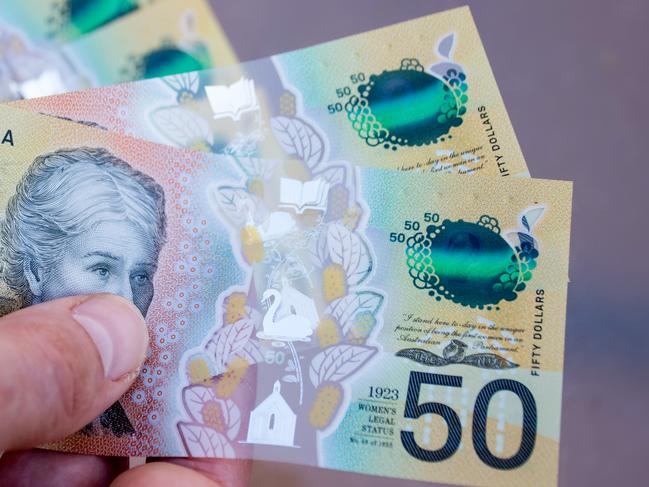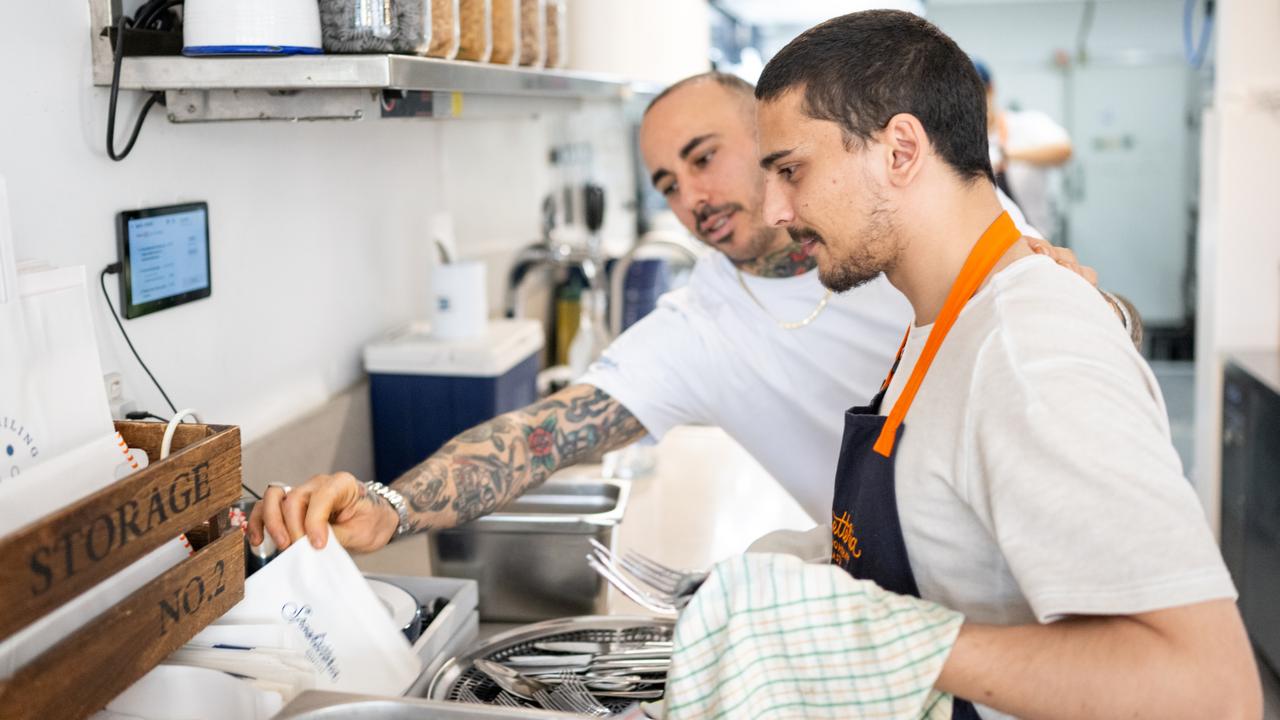Survey reveals highest earners think they need more money to be ‘comfortable’
Despite the average Aussie wage being around $68,000 per year – those who make more than double that still don’t think they’re rich.

Costs
Don't miss out on the headlines from Costs. Followed categories will be added to My News.
The majority of us would consider a $200,000-a-year salary more than enough to live a comfortable – if not downright luxurious – life.
But that’s not the case for many high earning Australians who don’t consider themselves to be particularly wealthy, despite earning a lot more than the average person.
According to the most recent figures from the Australian Bureau of Statistics (ABS), the average weekly earnings for Australian adults who work full time is $1711.60 – a figure that equates to $68,923 per year.
Nonetheless, those who earn double that say they still don’t feel well off.
The results from news.com.au latest Cost of Living survey, which asks readers about their biggest household money worries, are in and news.com.au has now kicked off The Money Project to help get your finances in shape for 2021.
The survey uncovered how we feel about wealth and money.
The number of respondents earning salaries of more than $100,000 has declined across the board. Female respondents with salaries of more than $100k dropped from 17 per cent in 2019 to 8 per cent in 2021 and the amount of male respondents with salaries above $100,000 also dropped, from 37 per cent in 2019 to 23 per cent in 2021.
As part of the survey, respondents were asked if they felt they were on “Struggle Street”, “Barely Coping”, “Doing OK” or on “Easy Street” based on how they believed they were faring financially.
It revealed 22 per cent of respondents who identified themselves as living on “Easy Street” had a salary of between $100,001 and $150,000 while 10 per cent were on $150,001 to $200,000 and 7 per cent were earning more than $200,000.
Those on “Easy Street” are 70 per cent more likely to be debt free now – but 57 per cent of people in that category believe they will need more than $1 million to retire.
A surprising 53 per cent of people earning between $150,000 and $200,000 reported feeling “frustrated” by Australia’s rising cost of living while 10 per cent were “angry” about the situation, compared with 36 per cent of respondents with incomes above $200,000 who said they were “frustrated” by rising costs and 7 per cent who were “angry”.
And even higher income earners indicated they need more money to be “well off”, with 12 per cent of those earning more than $200,000 a year believing they need more than $20,000 extra per week to feel that way.
Interestingly, the lower the salary, the less the respondent felt they needed in order to be well off, with 39 per cent of those earning under $45,000 per annum claiming they would need just $2000 more each week to be well-off.
So why is there such a huge different between people’s actual income and their perception of wealth?
Clinical psychologist and owner of The Couch Therapy Group, Donna Cameron, believes stress can rob people of feeling like they have enough.
“There is so much pressure at each end of the bell curve for everything we do and our earnings are no exception,” she says.
“In general, the higher the wage, the more stress and responsibility to maintain this wage. People earning over $200,000 a year are not home by 5pm each night for that family dinner and the stress that tends to come with these high positions often means that they don’t have time to ‘stop and smell the roses’.
“It may look to the outsider that having the fast cars, house on the water and enough points to fly first class around the world is the life to live, but for many of these wealthy people they’re desensitised by these items and this lifestyle because it is never changing, and they often do not have the time to stop and enjoy it. They’ll often associate with other people who also have money and often more money than they do, so their perception of wealth can be skewed.”
RELATED: Easy way to save $1,050 a year in one call
It’s a sentiment echoed by Dale Gilham, Chief Analyst at Wealth Within, who believes it’s also important to distinguish the difference between wealth and what a person earns.
“Wealth is the difference between what you own and what you owe, the bigger the difference between the two, the wealthier you are and the wealthier you will feel,” he asserts.
“Historically, statistics show that what we earn has very little to do with how much wealth we might have or can generate over our lifetime. In fact, someone on a lower income is often in a much better position to create wealth in their life.”
“Often, we hear the statement “keeping up with the Joneses” and so we tend to make judgments about people who have big houses, nice cars and fancy lifestyles, thinking they are wealthy, however what we do not see is how much debt they have accumulated in order to gain the lifestyle they live. It may be surprising to many that the wealthiest people are often the ones you least expect, and very well may be the people next door to you in an average middle-class suburb, driving a normal car and sending their children to the local school rather than living in a Point Piper or Toorak mansion.”

RELATED: Turn down the heat on your energy bills
Changing your money mindset
Mrs Cameron says there are ways to change to turn around your money mindset so you can feel “well off”, including accepting your earnings and what they provide for you, identifying what’s important in your life and brings you joy and to avoid debt.
“Money doesn’t open up a magical pathway with a guarantee of health and longevity for life,” she adds.
“At the end of the day money can provide us with things we need and want, and if we look after ourselves while earning, we can be very happy indeed, but without this balance it doesn’t matter how much a person earns as lasting happiness and contentment cannot be bought.”
Meanwhile, Gilham recommends monitoring lifestyle creep, sticking to your budget and rewarding yourself when you do to help you feel more financially comfortable.
“Everything is relative, having $1 to one person may mean the same as having $100 or $1000 to another. High-income earners can feel like they are not well-off, as when their income increases, their spending also increases,” he says.
“People feel trapped when they live day to day, or in other words, run out of money before the end of the month. When you practice sound money management and you have more cash in the bank, you’re not stressed about paying bills or where the money will come from for out of the ordinary expense. Therefore, you can invest and are more comfortable in having a splurge to reward yourself. Rewarding yourself for being a wise money manager makes you feel wealthier than others around you.”
RELATED: Combining energy bills could save hundreds
Read more stories about the Cost of Living here.
Originally published as Survey reveals highest earners think they need more money to be ‘comfortable’


